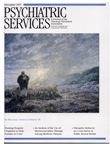Handbook of Psychiatric Genetics
In this day, when both the scientific and the popular press are filled with reports of revolutionary genetic discoveries, it is easy to see that the burgeoning and dynamic field of genetics is having profound effects on the theory and practice of medicine. Psychiatry is no exception, and current as well as future clinical, molecular, and statistical strategies promise to reveal much about the etiology, pathogenesis, and treatment of psychiatric diseases. In the foreseeable future we hope to discover how the disposition to mental illness is transmitted, the biological nature of the inherited factors, and the ways in which these genetic factors interact with the environment. Thus a text focused on psychiatric genetics is both timely and needed.
Handbook of Psychiatric Genetics provides a comprehensive overview of the field that encompasses much more than the term "handbook" suggests. Multiple distinguished scientists from around the world have contributed to the volume, which is edited by two eminently qualified academicians. Dr. Kenneth Blum is an internationally recognized authority in psychopharmacology and has published extensively on the neuropsychopharmacogenetics of addictive-impulsive-compulsive behaviors. Dr. Ernest Noble is one of the foremost leaders in the field of alcohol research and together with his colleagues identified the association of the D2 dopamine receptor with alcoholism in 1990.
The book is divided into six main sections covering analytic approaches to genetic mechanisms, DNA analysis, molecular biology of receptors and associated proteins, genetics of specific psychiatric disorders, genetics of impulsive-addictive and compulsive disorders, and the genetic impact on behavior. The book is primarily a molecular and statistical genetic text, with less attention to clinical genetics. The sections are well organized and clearly written, but they are quite detailed and technical and assume prior knowledge of molecular genetics, biochemistry, and statistics. Terms such as linkage disequilibruim, RFLPs, exons, and introns are often used without explanation or definition. Thus the book is aimed at scientists and students who are already familiar with the basic concepts of these fields.
Several chapters are devoted to the genetics of the substance use disorders and the pleasure and reward system in the brain. Other individual syndromes covered at some length are attention-deficit hyperactivity disorder, Tourette's syndrome, and Alzheimer's disease. Molecular linkage studies of bipolar affective disorder are the subject of one chapter. Noticeably absent is a specific chapter on schizophrenia, although this gap may reflect the varying and conflicting research reports on this illness to date. The final chapter in this volume addresses the ethical questions raised by psychiatric genetics and touches on such topics as informed consent, confidentiality, and genetic discrimination.
Overall, Handbook of Psychiatric Genetics is a well-written and important reference source for professionals who have a specialized interest in the molecular genetics of the central nervous system.
Dr. Johnson is affiliated with the department of psychiatry at Tulane University Medical Center in New Orleans.



